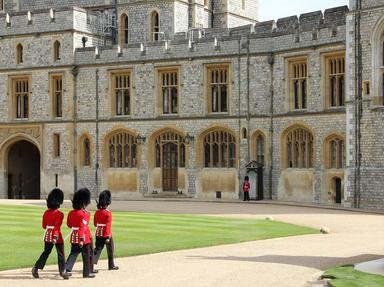
Royal Soubriquets - Nicknames of English Kings Quiz
English monarchs are usually known by a regnal number, but some also bear a nickname that they are also referred to as. Can you match the nickname to the monarch?
A matching quiz
by Red_John.
Estimated time: 3 mins.